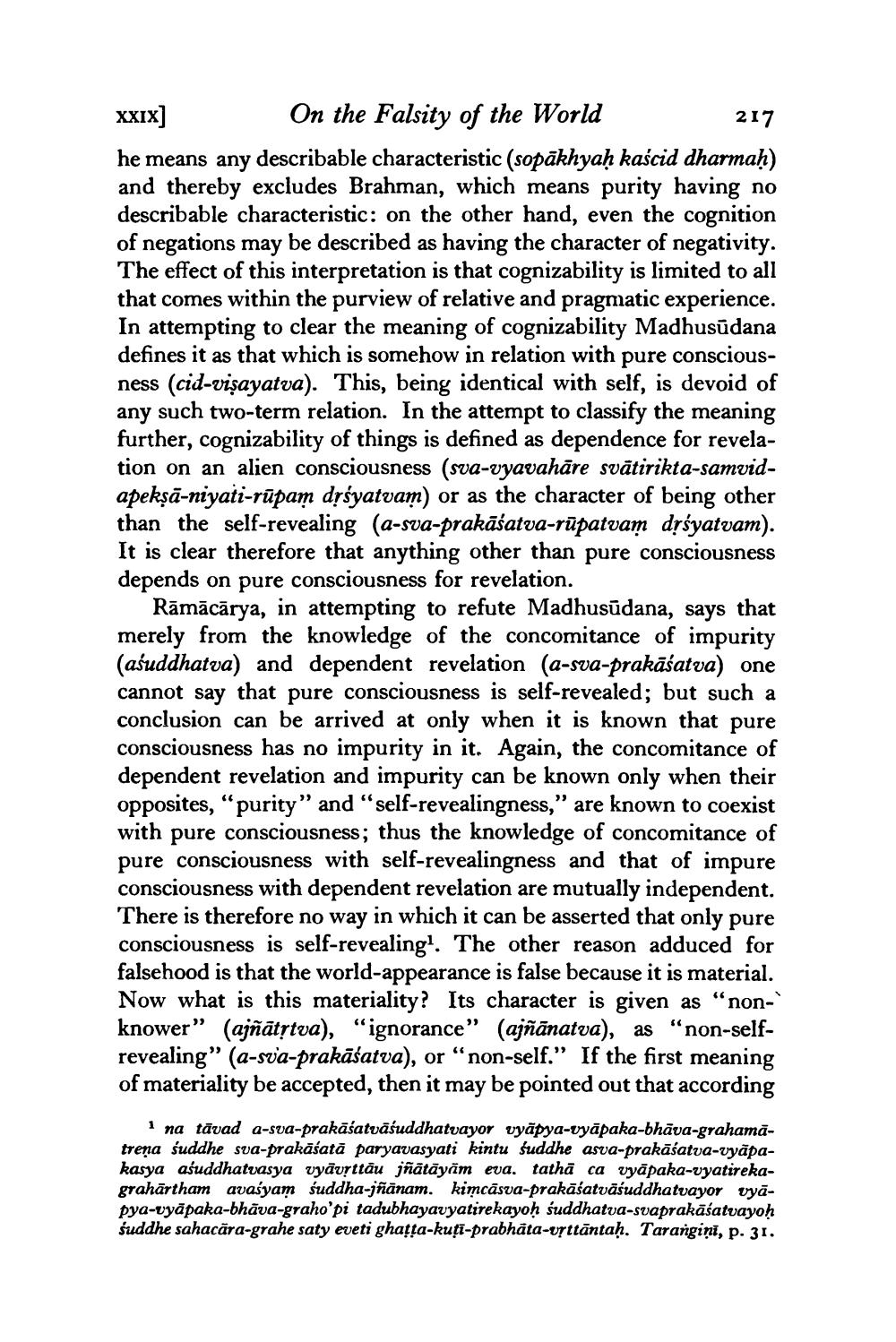________________
XXIX] On the Falsity of the World
217 he means any describable characteristic (sopākhyaḥ kaścid dharmaḥ) and thereby excludes Brahman, which means purity having no describable characteristic: on the other hand, even the cognition of negations may be described as having the character of negativity. The effect of this interpretation is that cognizability is limited to all that comes within the purview of relative and pragmatic experience. In attempting to clear the meaning of cognizability Madhusudana defines it as that which is somehow in relation with pure consciousness (cid-vişayatva). This, being identical with self, is devoid of any such two-term relation. In the attempt to classify the meaning further, cognizability of things is defined as dependence for revelation on an alien consciousness (sva-vyavahāre svātirikta-samvidapekṣā-niyati-rūpam dựśyatvam) or as the character of being other than the self-revealing (a-sva-prakāśatva-rūpatvam dịśyatvam). It is clear therefore that anything other than pure consciousness depends on pure consciousness for revelation.
Rāmācārya, in attempting to refute Madhusūdana, says that merely from the knowledge of the concomitance of impurity (ašuddhatva) and dependent revelation (a-sva-prakāśatva) one cannot say that pure consciousness is self-revealed; but such a conclusion can be arrived at only when it is known that pure consciousness has no impurity in it. Again, the concomitance of dependent revelation and impurity can be known only when their opposites, “purity" and "self-revealingness," are known to coexist with pure consciousness; thus the knowledge of concomitance of pure consciousness with self-revealingness and that of impure consciousness with dependent revelation are mutually independent. There is therefore no way in which it can be asserted that only pure consciousness is self-revealing. The other reason adduced for falsehood is that the world-appearance is false because it is material. Now what is this materiality? Its character is given as "nonknower” (ajñātstva), "ignorance" (ajñānatva), as "non-selfrevealing” (a-sva-prakāśatva), or “non-self.” If the first meaning of materiality be accepted, then it may be pointed out that according
i na tävad a-sva-prakāśatvāśuddhatvayor vyāpya-vyāpaka-bhāva-grahamātrena suddhe sva-prakāśată paryavasyati kintu suddhe asva-prakāśatva-vyāpakasya aśuddhatvasya vyāvíttāu jñātāyām eva. tathā ca vyāpaka-vyatirekagrahārtham avasyam śuddha-jñānam. kimcāsva-prakāśatvāśuddhatvayor vyāpya-vyāpaka-bhāva-graho'pi tadubhayavyatirekayoḥ śuddhatva-svaprakāśatvayoh Suddhe sahacara-grahe saty eveti ghatta-kuți-prabhàta-uļttāntah. Tarangini, p. 31.
can wyżentaw natinti kintu biet thuyāpaka-bhāva.g




